This is the members-only edition of Future Crunch, a weekly roundup of good news, mind-blowing science, and the best bits of the internet. If someone forwarded this, you can subscribe here. One third of our subscription fees go to charity. You can buy a gift subscription here. Check out our merchandise here.
Good news you probably didn't hear about
In 2013, the 11 countries of the WHO South-East Asia Region adopted a goal to control rubella by 2020. They made incredible progress. Routine coverage of the rubella vaccine increased from 12% in 2013 to 86% in 2021, and 515 million people were vaccinated. Rubella incidence decreased by 80%, from 5.5 to 1.1 cases per million; the Maldives and Sri Lanka achieved elimination; and Bhutan, North Korea and Timor-Leste have all stopped endemic transmission for over 36 months. WHO
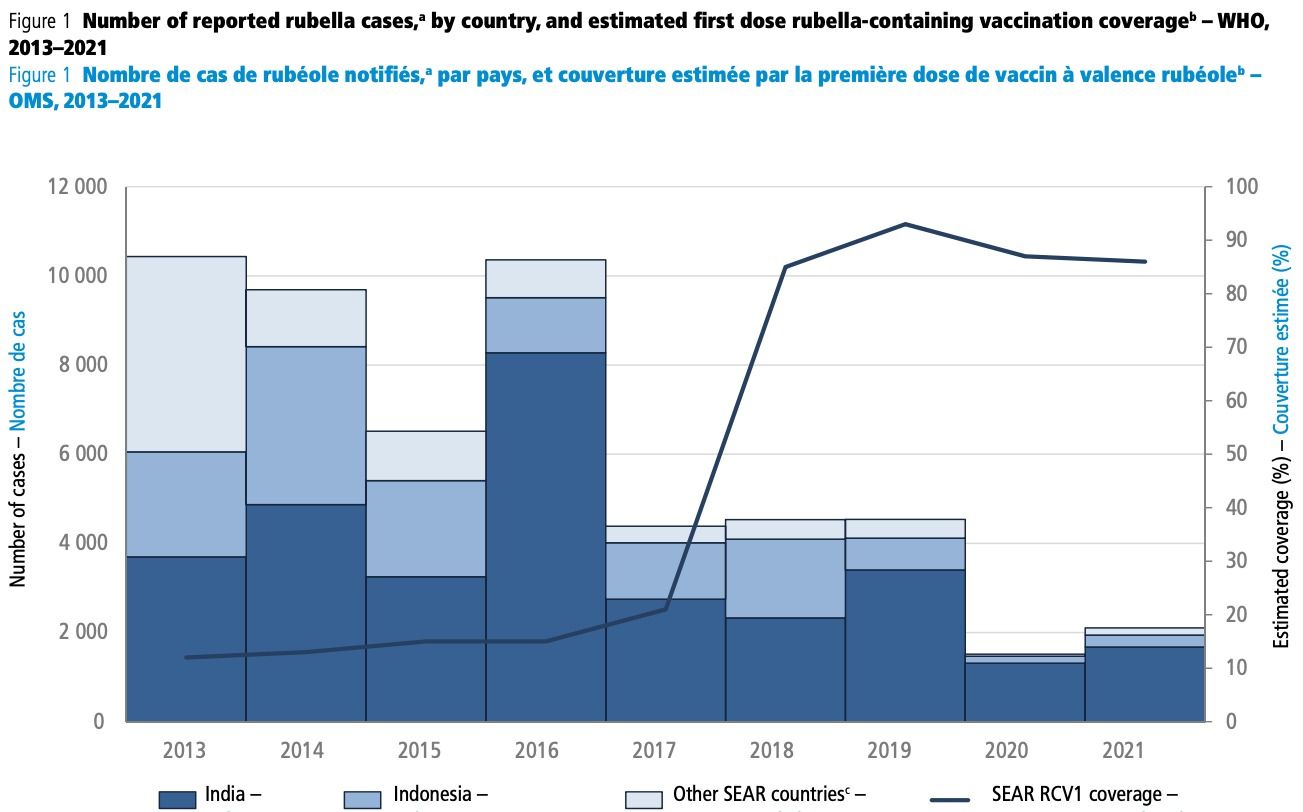
Belarus, Kyrgyzstan, Turkmenistan and Uzbekistan have reached their targets on Hepatitis B control, joining five other countries in Europe that have done the same in the last two years, and bringing the continent a step closer to achieving the ultimate goal of eliminating viral hepatitis as a public health threat by 2030. WHO
Japan has raised the age of consent from 13 (the lowest among developed nations) to 16 and introduced far stricter laws against sex crimes, expanding the scenarios under which rape prosecutions can be made, including for victims who were frightened or under the influence of alcohol or drugs and in cases of perpetrators taking advantage of social status. BBC
Kenya has made some big strides in reducing teen pregnancy, with rates falling by more than half in four years. In 2018, healthcare facilities recorded a total of 427,297 pregnant teenagers. By 2022, that number had fallen to 260,442. This is a big deal–until recently Kenya had the third-highest rate of teen pregnancy in the world. The Standard
The number of people who die after a breast cancer diagnosis in England has decreased by two-thirds since the 1990s, a study of more than half a million women has shown. 'We knew that mortality had reduced during the past 20 years, but we didn’t know by how much.' Nature
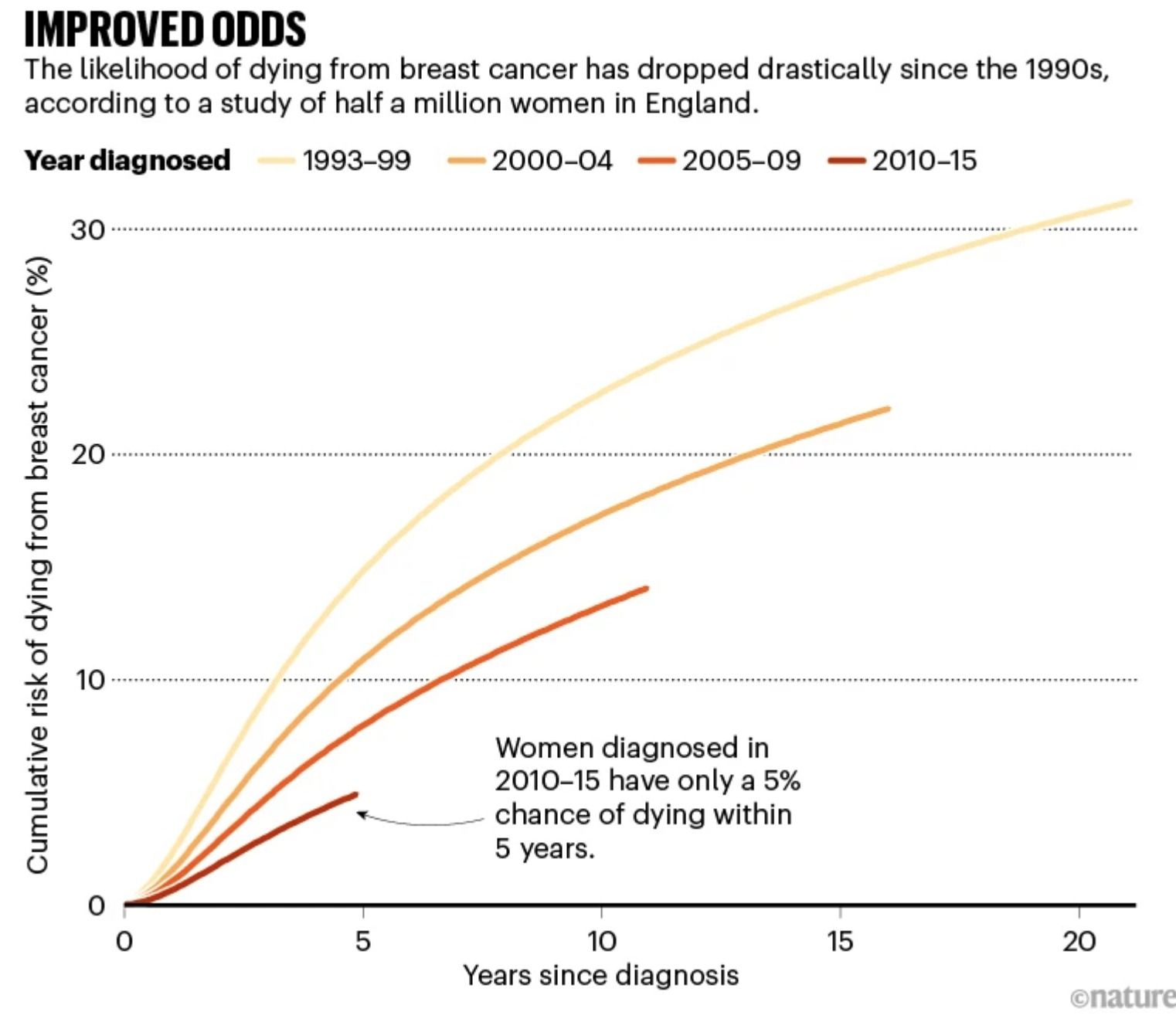
One of the most progressive social movements in the United States right now is the push to pass clean slate laws: legislation that removes a criminal record after people have remained crime-free for a certain time. This matters, since one in three Americans has some kind of record. New York just became the 12th state to pass a law that meets the criteria. NYT
We're building a pathway that automatic record clearance is a reality in all 50 states that will unlock second chances for additional 14 million people.
Sheena Meade, CEO, Clean Slate Initiative
The federal effort to expand internet access in the US took a huge step forward last week with the announcement of almost a billion dollars in grants to install connections where gaps in connectivity remain. The grants are intended to trigger the laying of 19,300 km of new fiber throughout 35 states and Puerto Rico. AP
Swiss voters have approved an increase in the minimum tax on businesses from 11% to 15%, bringing it in line with the OECD's targets, and suggesting that the dynamics around a global minimum tax have substantially shifted to the point that it is on the precipice of reality in many parts of the world. Politico
Estonia has become the first ex-Soviet state–and 35th country in the world–to pass a law legalising same-sex marriage. Lawmakers voted to approve the law earlier this week, and it will go into effect on 1st January 2024. 'This is a decision that does not take anything away from anyone but gives something important to many.' CNN
Pew on attitudes to same-sex marriage around the world. Western European countries are staunchly liberal, as are Japan and Australia; a majority of countries in the Americas are supportive; African countries are hostile; but the big surprise is India, where 53% are in favour, despite the fact that it remains illegal there (for now). Pink News
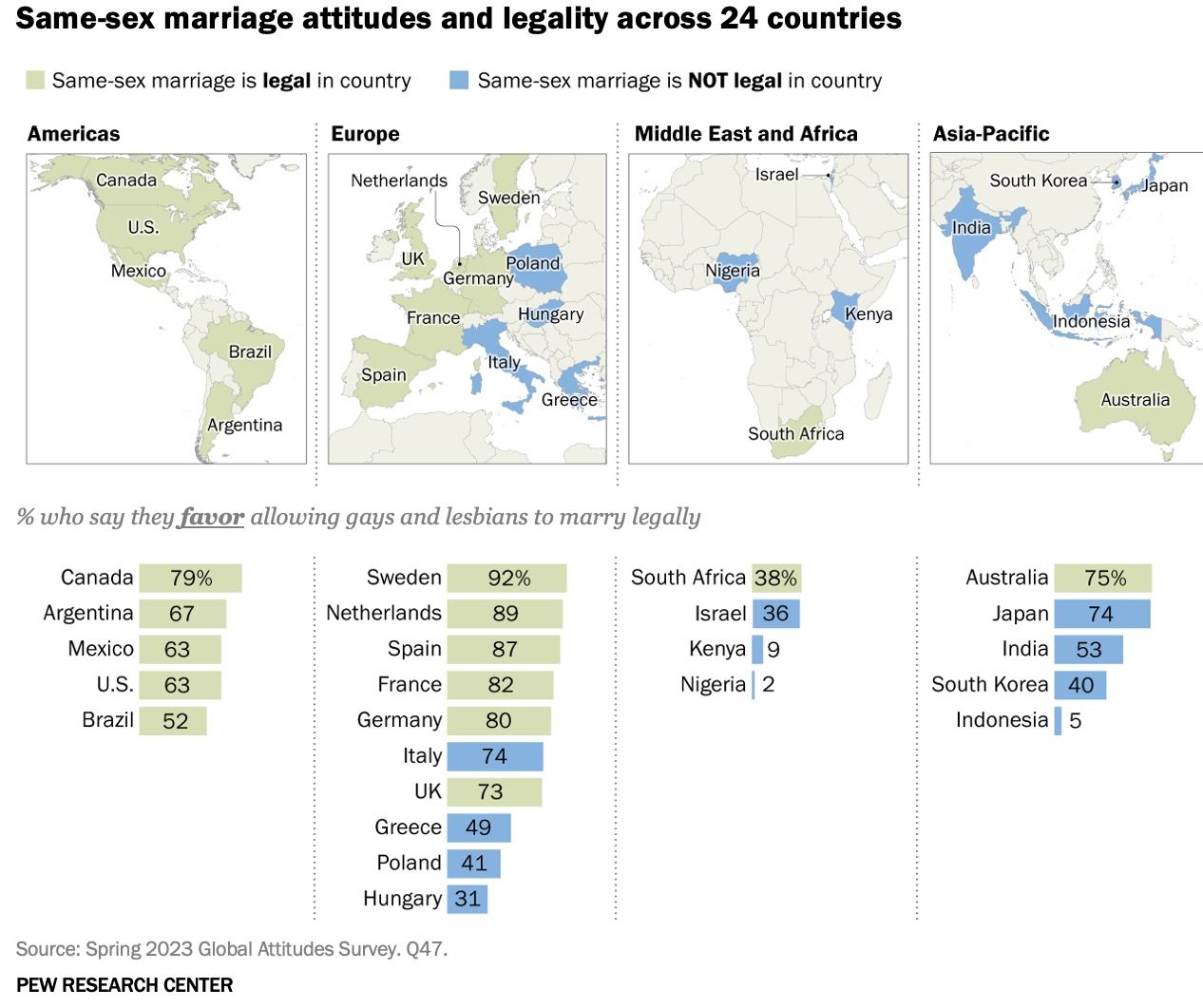
Even more good news you didn't hear about
Things were better in the good old days, except actually they weren't. After years of fear-mongering, news organisations are now ignoring the decrease in US homicide rates. Read about the Indian city where nobody goes hungry thanks to the Sikh practice of seva. A malaria vaccine in Kenya has resulted in a noticeable drop in child deaths. Lithuania has achieved remarkable success in reducing the impact of alcohol. Alabama is the first US state to lay out a strategy to end cervical cancer deaths. Diversity increased by 38% on the boards of America's largest companies in 2022. The United Kingdom has broadened a plan to clear women’s historic convictions for homosexuality. Germany agrees to pay over a billion dollars to Holocaust survivors. Riots in India fall to their lowest-ever level.
Hope Is A Verb
Meet Felix Brooks Church, the co-inventor of a small machine known as a 'dosifier' which adds lifesaving nutrients to the staple foods of communities in southern Africa. Felix and his team at Sanku have installed over 800 machines in local mills and are on a mission to reach 100 million people by 2030.
In Episode 2 of our new podcast, Felix shares his journey from rising gridiron star to inventor and how he dragged his machine across the borders of African countries to test it in local mills. He talks us through the impact of 'hidden hunger' and how he believes that this simple but powerful technology could eventually end malnutrition, creating a more abundant future.

The only home we've ever known
A new report by the Rights and Resources Initiative has found that land legally owned by Indigenous communities increased by 102.9 billion hectares, an area the size of Egypt, between 2015 and 2020. The report analysed 73 countries and highlighted Kenya and Liberia as making the most significant gains. Mongabay
Indigenous communities have taken ownership of the Tama Wildlife Reserve in southwestern Ethiopia, making it the largest community conservation area in the country. Spanning 197,000 hectares, the reserve is a vital corridor between two national parks and home to diverse wildlife including the black-winged lovebird, Somali giraffes, and African elephants. Mongabay
Lula has begun to rein in the rampant destruction of the Amazon. Deforestation fell 68% in April compared with the same month last year, and May saw a smaller drop of 10%. Overall, the first five months of the year have seen a 31% drop in deforestation compared to those months in 2022. New Scientist
Good news for whales! Blue whale populations are making a comeback off both the west and east coasts of the United States, and in cooler waters, Iceland has suspended this year’s whale hunt, effectively heralding the end of a controversial practice that has been in terminal decline for years.
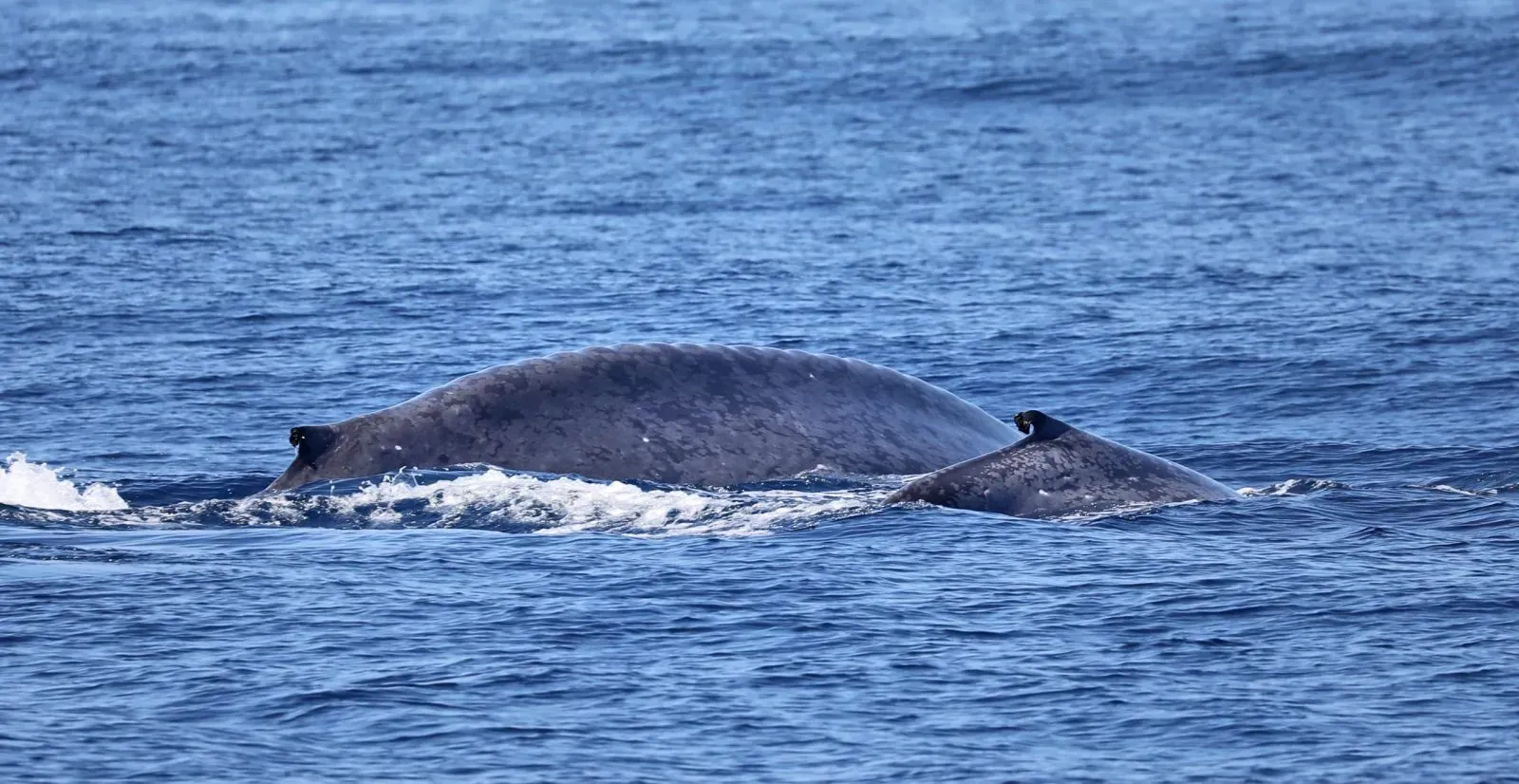
A group of women in Mexico City is creating quite the buzz after saving around 510 beehives from extermination, each with an average of 80,000 bees. The grassroots project has inspired other groups to join the mission and is welcome news after the 'mass killing' of millions of bees by pesticides in southern Mexico earlier this year. AP
We tried to work with men, but they seem to love the danger. We began to see that it wasn’t very viable, so we began to contract just women. We realised that we can do the exact same as them, and often even do it better.
Adriana Velíz, Mexico City
Dutch people own more bicycles per capita than any other place in the world, and the country has more than 32,000 km of dedicated cycling paths. The success of cycling in the Netherlands wasn't inevitable and didn't magically emerge from Dutch culture. It was designed.
South Korea keeps 90% of its food waste out of landfills and turns most of that into animal feed, fertiliser and fuel. The success of composting in South Korea wasn't inevitable and didn't magically emerge from Korean culture. It was designed (and can be replicated).
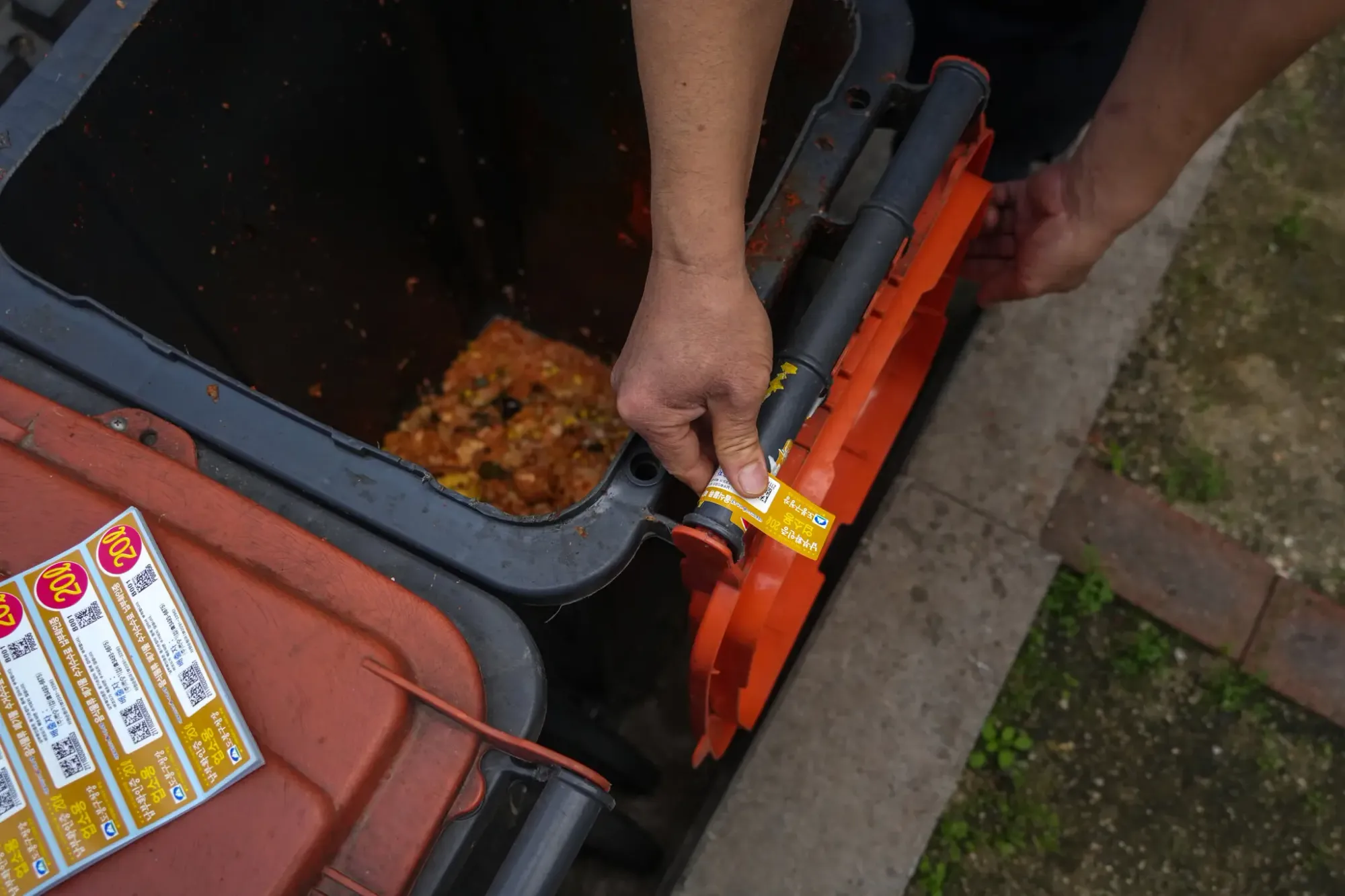
Mali will receive $150 million from the World Bank to restore and reforest 400,000 hectares of degraded land, which will benefit 2.3 million people. The funds will be distributed among 87 councils to restore agricultural lands and also the inland delta of the River Niger, the largest wetland in West Africa. Afrik21
The Biden administration has just committed over $600 million to help coastal communities fight climate change and $161 million for ecosystem restoration on public lands. The latter will focus on 21 'restoration landscapes' ranging from the sagebrush steppe of the high desert to wetland meadows and watersheds. Reuters
Canada will phase out chemical toxicity testing on animals thanks to amendments to its Environmental Protection Act. It signals the end of a horrible practice that has exposed rats, mice, rabbits, fish, birds to 'severe pain near, or beyond the pain tolerance threshold.' World Animal News
UNESCO recently designated 11 new biosphere reserves in nine countries, bringing the worldwide total to 748 sites in 134 countries. Do yourself a favour and check out these new sites–they're the polar opposite of old-school, fortress-style conservation, and some of them are extraordinary.
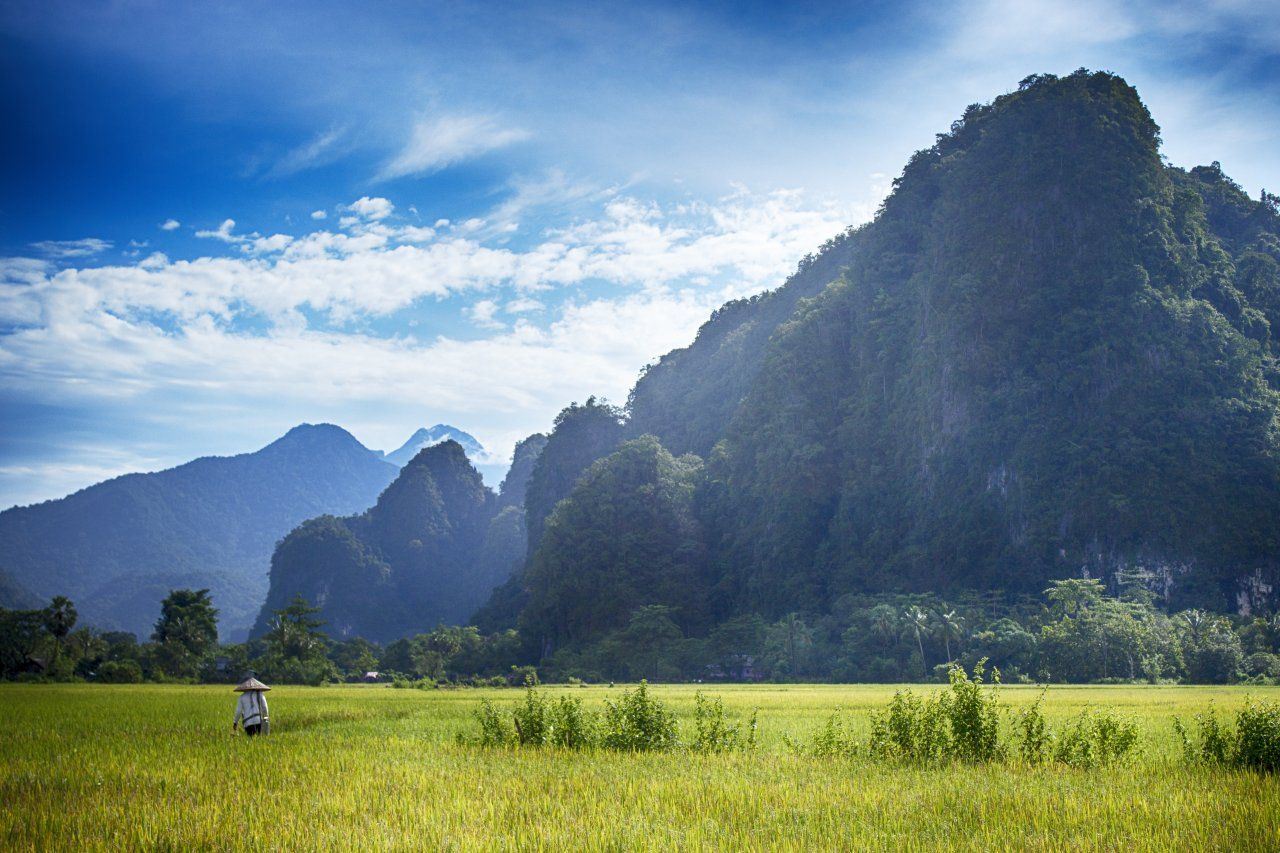
Saving the world is cheaper than ruining it
We're just gonna go ahead and leave this here:
Most of the research selected by the media was overly focused on large-scale climate projections that will occur in the future, and a narrow range of threats such as polar bears, drought and melting glaciers. The paper shows that this type of narrative does not activate the mechanisms known from research on psychology that might engage pro-environmental behaviours in readers. On the contrary, the media's selective choice of certain elements of climate change research could backfire, provoking denial and avoidance.
TLDR: bad news doesn't motivate climate action. Phys.org
Voters in Switzerland have backed a new climate bill designed to cut fossil fuel use and reach net-zero carbon emissions by 2050. The law will require a move away from dependence on imported oil and gas, towards the use of renewable sources. BBC
Spain is on track to generate more than half its power from renewables this year, the first of the top five European countries by power demand to accomplish this feat. The country will reach this significant decarbonisation milestone this year, beating France, Germany, Italy and the UK to the record. Bloomberg
The Dutch government is set to permanently shut down Europe’s largest fossil gas field in less than four months, accelerating the closure timeline by a year. The field has been a key source of gas for much of western Europe, as well as a backbone of Dutch public finances, since production commenced in 1963. Bloomberg
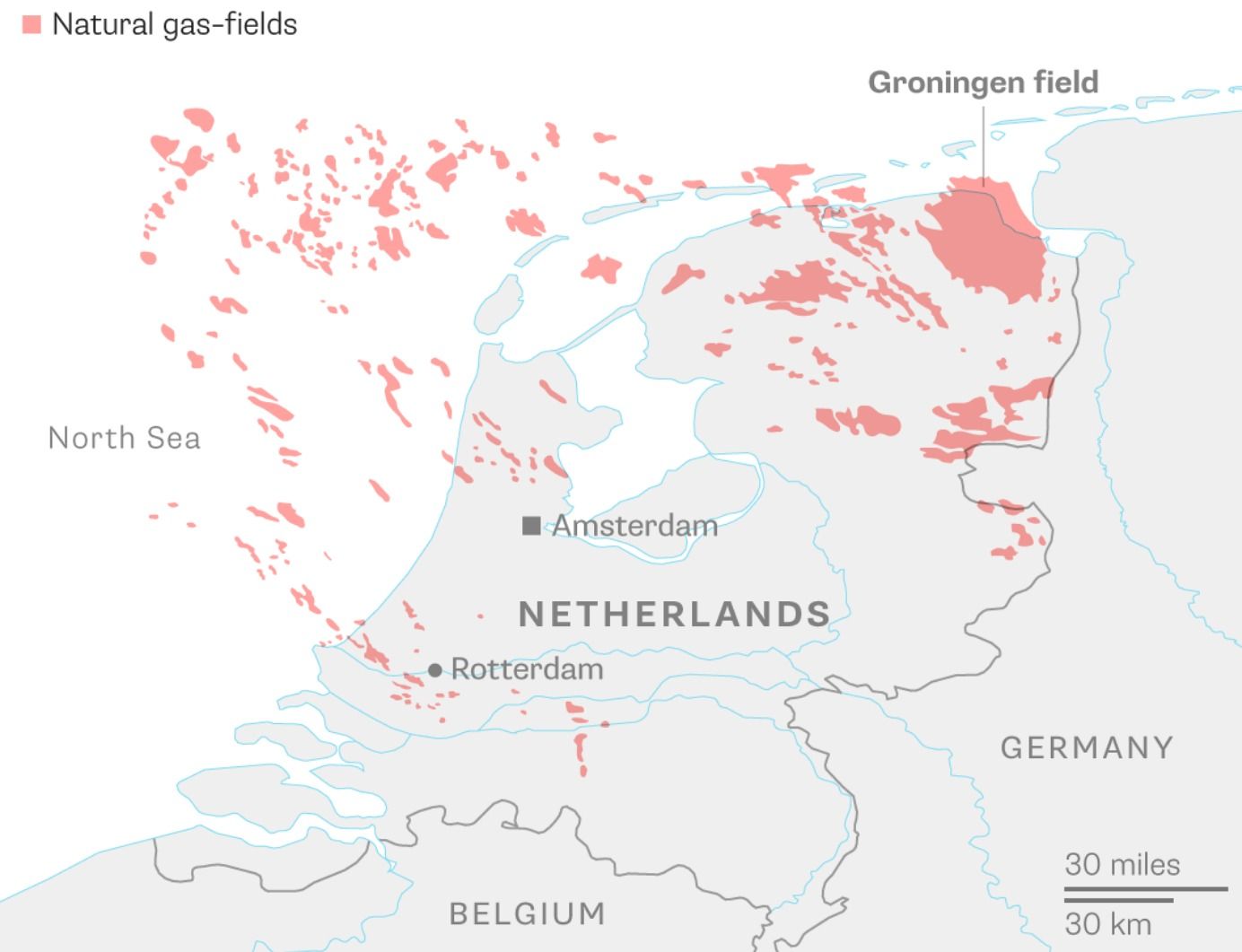
The Philippines has unveiled plans to start constructing the largest solar farm on the planet–a 4 GW monster, almost twice the size of the current record holder in India. The country had 13 GW of solar in the pipeline as of March 2022, a tenfold increase from March 2021. PV Tech
China has added 22 GW of coal plants this year. It's a staggering amount, but only a quarter of the 87 GW of clean energy that's been added in the same period. As soon as that difference becomes greater than the increase in energy demand, then China's emissions will start falling. If you'd like to understand why, this will help.
Chinese researchers say they've developed perovskite solar cells that not only have greater efficiency but can also be mass-produced at half the cost of traditional silicon cells. Last year, this team's work was recognised as one of the top 10 scientific advancements in China by the Ministry of Science and Technology because of its potential. SCMP
No, nuclear is not a good option. That doesn't mean we should ditch it–the overwhelming priority should be to keep any existing nuclear plants open; but when it comes to new plants, the current generation of technology just doesn't cut it on economic grounds. Here's why.
Meanwhile, the breakout building material of the 21st century? Wood.
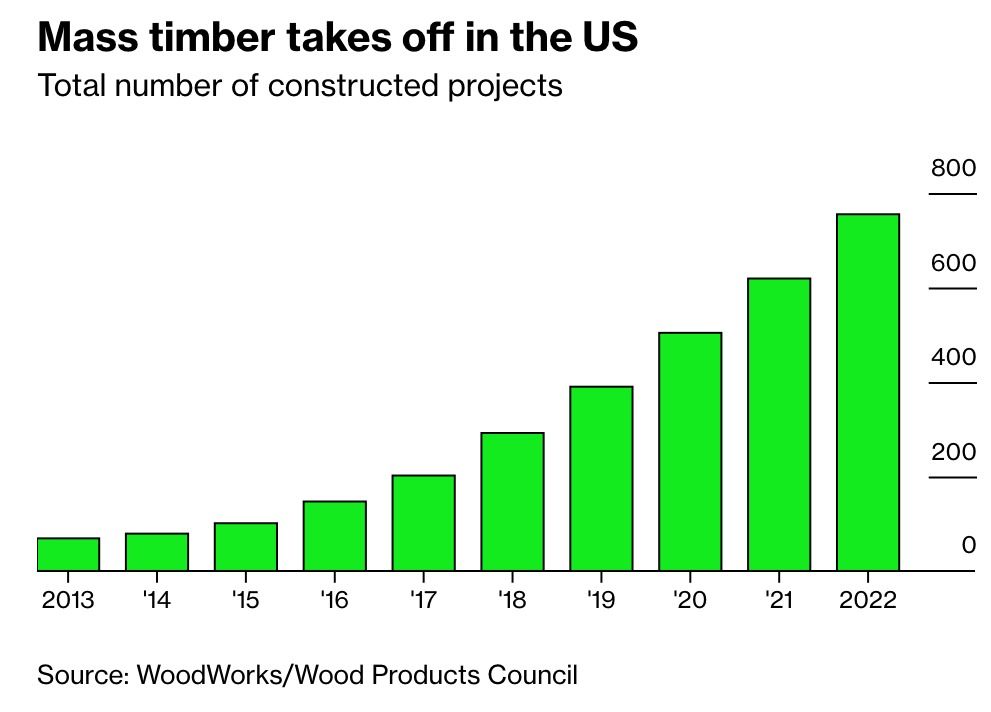
Here comes the money: the US Department of Energy is lending $9.2 billion to Ford and South Korea's SK On for the construction of three battery factories in Kentucky and Tennessee–a move designed to displace over 1.7 billion litres of petrol a year. Financial Times
Hello, industrial policy (let the battery arms race begin). Japan is raising its support for batteries to up to $2.2 billion, pledging nearly $1 billion in new subsidies for Toyota and other manufacturers. 'As the international competition for storage batteries is intensifying, competition for capital investment is also becoming more intense.' Reuters
Electric vehicle sales soared more than 79% year-over-year in the first quarter of 2023 in the United States, helping it surpass Germany to become the world’s second-largest EV market. In the European Union, EV sales jumped by 71% year-over-year in May, and Tesla has more than doubled sales in the year to date.
The structural shift to electric vehicles is coming, and faster than anyone predicted. It represents the biggest change in mass-scale transportation since cars replaced horses. What happens when hardly anyone needs gasoline anymore? One answer is that gas stations (and their leaky, toxic underground storage tanks) disappear from our world, and that's good news for everyone. Grist
Oh, wow, here’s yet another benefit of the clean energy transition.
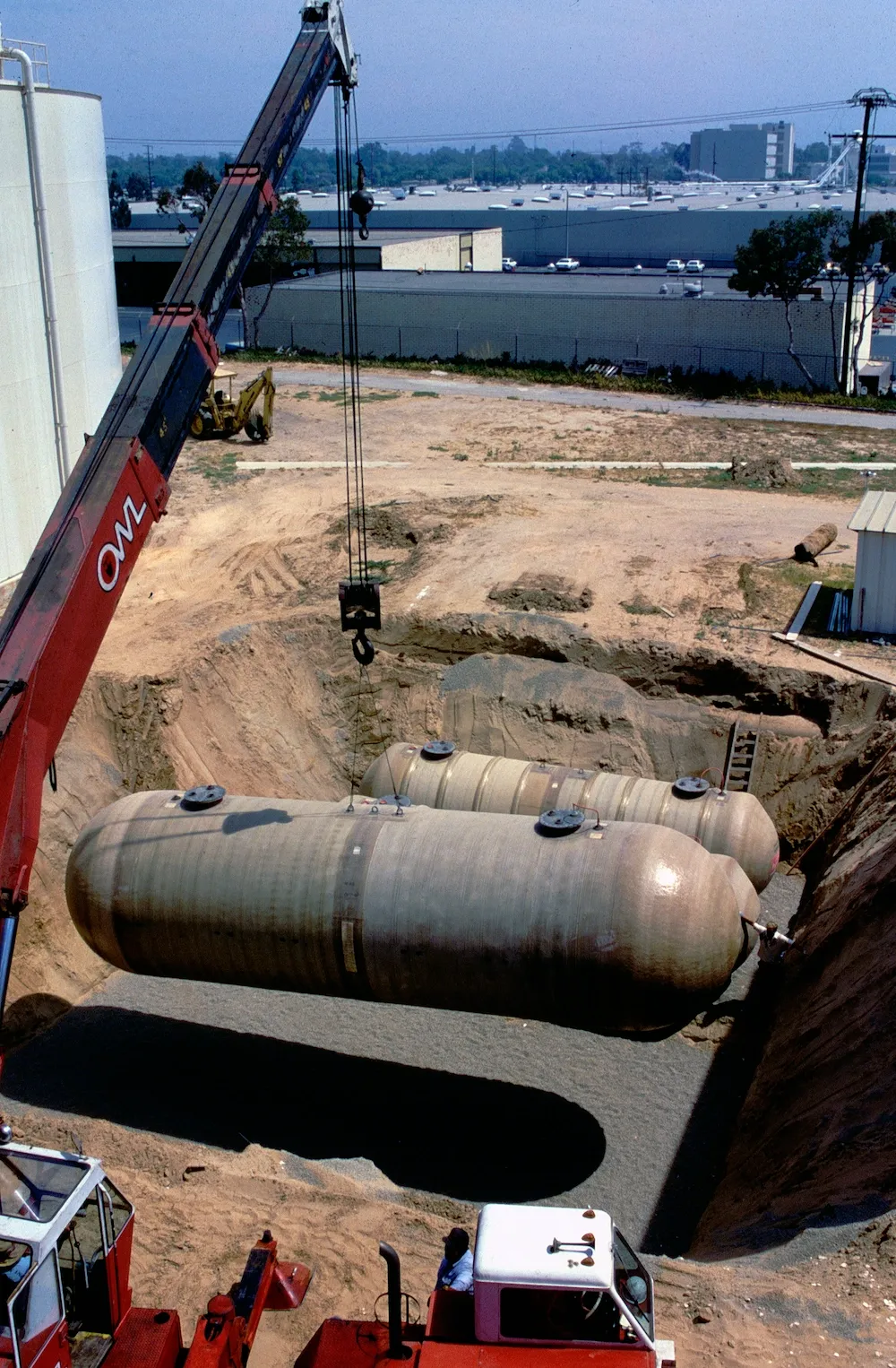
Indistinguishable from magic
Japanese scientists have used cosmic ray muons–showers of particles that erupt when cosmic rays collide with Earth's atmosphere–to calculate a person's position in a building's basement, a location in which GPS doesn't work. The breakthrough might just give humanity a viable underground navigation system. Science Alert
While everyone else tweets about AI killing us all, researchers at NYU have built a large language model from millions of medical notes using more than 380,000 patients’ electronic records. The model correctly identified 85% of patients who eventually died and 80% of those who were readmitted, compared to 78% and 75% for traditional models, respectively. Freethink
IBM has achieved a big breakthrough in fixing something known as quantum unreliability–the tendency of a quantum computer to come up with different answers for the same calculation. It heralds the move from 'quantum supremacy' to 'quantum utility'–getting the computer to come up with reliable, useful answers. NYT
MIT engineers have unveiled a new compact, lightweight design for an electric motor capable of generating 1 MW of power. When fully assembled, the motor will weigh 57.4 kg, which equates to 17 kW/kg, considerably more than the 13 kW/kg that NASA has identified as necessary to power large electric aircraft. Spectrum
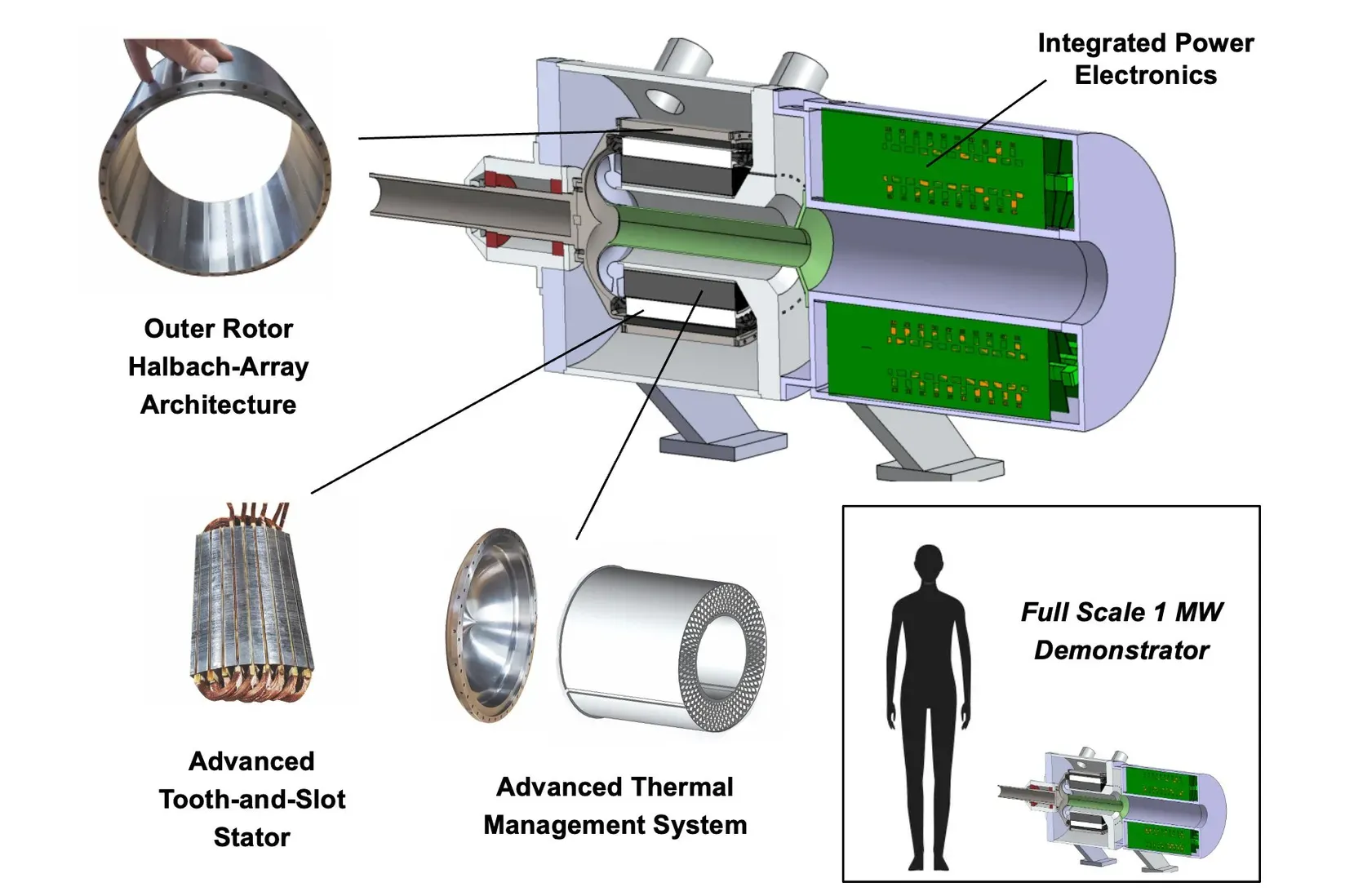
Earlier this week, the US Department of Agriculture allowed two companies, Upside Foods and Good Meat, to sell lab-grown meat. This ruling makes the United States the second country in the world, following Singapore, where consumers can purchase lab-grown meat. 'It is a dream come true. It marks a new era.' AP
A synthetic biology company from Cambridge, England, says it can reprogram tens of millions of human stem cells at a time into highly defined and mature human cell types, with an unparalleled level of consistency. The company says its innovation is so disruptive that it will do for stem cell biology what CRISPR has done for genetics. Proto Life
This can speed up the manufacturing process by a factor of 10 and lower costs by two orders of magnitude. We now have a technology that will lead to the development of novel treatments in the next five years for neurodegenerative and other serious illnesses.
Epic just released a new tool for game developers that can capture an actor’s facial performance using a smartphone and apply it to Unreal Engine in minutes. The technology is extraordinary–here's a video showing what it's capable of, a short film starring actor Radivoje Bukvić delivering a monologue based on a poem by Serbian poet Mika Antić. The Verge
The information highway is still super
Arthur C Brooks has serious Old Guy Sitting On The Porch Dispensing Wisdom Energy (we'll take that over BDE any day). His latest column in The Atlantic is yet another classic. He says the path to happiness is narrow, but very achievable. It's not about having a certain net worth, family configuration, or set of ideological views. It requires that you be generous in love and allow yourself to be loved. Staying on that path demands a conscious focus on your relationships, not leaving their quality and intensity to chance. This sounds obvious, but sometimes we all need a reminder.
In 2016, all occupations in the US military were finally opened to women. Most significant, women were no longer restricted from combat, and that meant the army had to come up with a tactical bra. This is the story of how it was developed, a project years in the making, shrouded in secrecy, and designed with help from over 18,000 female soldiers. "If you think Victoria has a secret, wait until you encounter the wall of obfuscation put up by the US Army." New Yorker
Earlier this year Chinese scientists announced that they had created monkey embryos that had not been produced by fertilization. They were constructed from scratch from monkey embryonic stem cells, with no egg or sperm involved. It's a big moment, fraught with legal and ethical concerns. Quanta has a great deep dive on all of it.
Sally Adee, the writer of New Scientist's sci-fi column, has a list of recommendations of new sci-fi books. Some great suggestions here. We can confirm that Some Desperate Glory is awesome, and The Ferryman and The Archive Undying have just been added to the 'to-read' list.
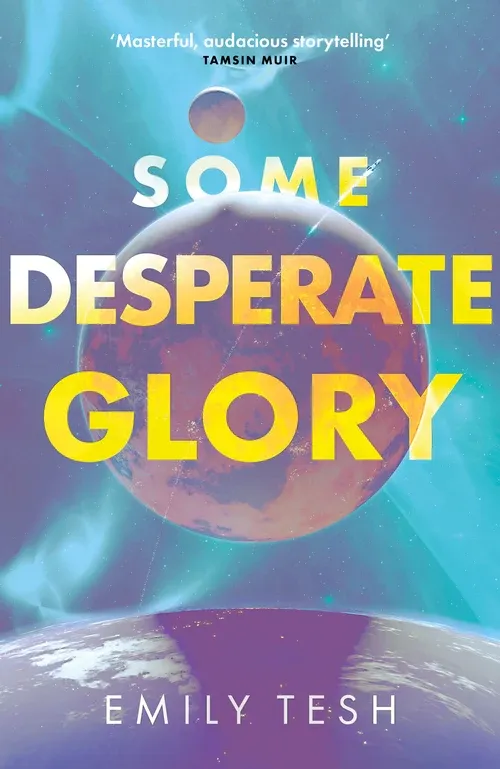
That's it for this edition, hope you enjoyed it.
We're changing our schedule next week. Expect a special announcement in a few days, where we'll let you know more.
Much love,
Gus and Amy






